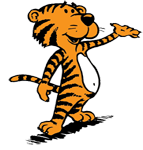4th Grade Newsletter
May 11, 2021
Language Arts
What are we learning?
We will be beginning our Historical Fiction Unit!
In this unit we will…
- Craft short stories using a time period that we have discussed in Social Studies this year
- Understand that fiction writers draw from real experiences to increase believability and relatability
- Understand that applying the features of the genre improves the quality of he piece
- Understand that in fiction, the relationship between conflict and resolution communicates the deeper meaning of the piece
- Develop the conflict by placing true-to-life characters into a historical fiction context
- Elaborate our story to reveal the historical time period
Home/School Connection
- How can you help readers see themselves in the past?
- What kind of details are you adding to your writing to help the reader transform into the past?
- What books have you read to help you shape your writing?
- How can you show human struggles in your text?
- What books have you read in class to help you understand historical fiction?
Math
What are we learning?
We will continue our Fractions Part 2 unit! In this unit we will…
- Represent rational numbers (whole numbers, fractions, and decimals) in multiple ways (visually, symbolically, verbally, contextually, and physically)
- Understand the meanings of the operations using fractions and decimals
- Explore strategies for computation of fractions and decimals
- Find patterns that are found in numbers
- Estimate the sum or difference of two fractions
- Determine common denominators for fractions using common multiples
- Simplify fractions using common multiples and factors
- Add and subtract proper and improper fractions and mixed numbers
- Solve single-step problems involving addition and subtraction within fractions
Home/School Connection
- How can estimation help you solve problems?
- How can benchmark fractions be used to help determine answers?
- How can representations help you solve computing fractions?
- How do you compute fractions without representations?
- Word Problems (you can substitute other numbers):
- David had ¼ of a burrito. His brother give him another ¼ of a burrito. How much burrito did David have then?
- Anna ate ⅛ of a pizza. Sarah ate ⅜ of a pizza. How much pizza did they eat together?
- Melissa is making cookies. One recipe calls for ¾ of a cup of water. Another recipe calls for ½ cup of water. How much water will Melissa need for both types of cookies?
- Jenn used ⅖ pounds of clay to make an animal figure. She used 6/10 pounds of clay to make a bowl. How much clay did she use in all?
- Connor ate ½ burrito. His brother ate ⅓ burrito. How much of the burrito did the brothers eat?
Science
What are we learning?
- Our solar system is composed of planets that each have specific characteristics.
- The relationship of the Earth, moon, and sun in the solar system and to each other lead to seasons, tides, and the phases of the moon.
Home/School Connection
- Can you name the planets in size order?
- Can you name them in order from the sun?
- What is different about the inner planets and the outer ones?
- What is between the inner and outer planets?
- How does the moon cause the high and low tides?
- How do seasons change?
- Why are southern seasons the opposite of northern seasons?
Social Studies
What are we learning?
We will begin our Civil Rights & 20th Century Unit. In this unit we will…
- Describe the transition from a rural, agricultural society to a more urban, industrialized society
- Describe how national events affected Virginia and it’s citizens
- Discuss women’s suffrage
- Discuss the Great Depression
- Describe the events linking to desegregation
- Describe the events linked to Massive Resistance
- Describe the major products and industries important to Virginia’s economy
- Describe the political , social, and economic impact made by people, such as:
- Maggie L. Walker
- Harry F. Byrd Sr.
- Oliver W. Hill Sr.
- Arthur Ashe Jr.
- Linwood Holton Jr.
- Douglas Wilder
Home/School Connection
- How has Virginia changed over time?
- How might Virginia continue to change, moving forward into the 21st century and beyond?
- How might Virginia’s history be different if the Massive Resistance Movement never took place?
- How have people in Virginia adapted to the 21st century?
- What do we do differently now than we did 10, 20, 50, or 100 years ago?
- Is it important that all people are treated equally? Why?
Positivity Project
- This week’s character trait is the Other People Matter mindset.
- This means identifying and appreciating the good in others and knowing words and actions affect others.
- This also means supporting others, cheering on others’ successes, and being present with those in our lives.
- We continue to connect the Other People Matter mindset to the other character strengths we’ve talked about this year.
Online Learning Tip
- Make sure to listen carefully to directions and read directions carefully.
- Encourage your student to ask questions! It is difficult for a teacher to recognize when a student is confused and needs support online. Have your student ask for clarification and support when needed.
- Take your time with school work. Do not rush through, but instead take the time to read carefully and think critically about each question.

